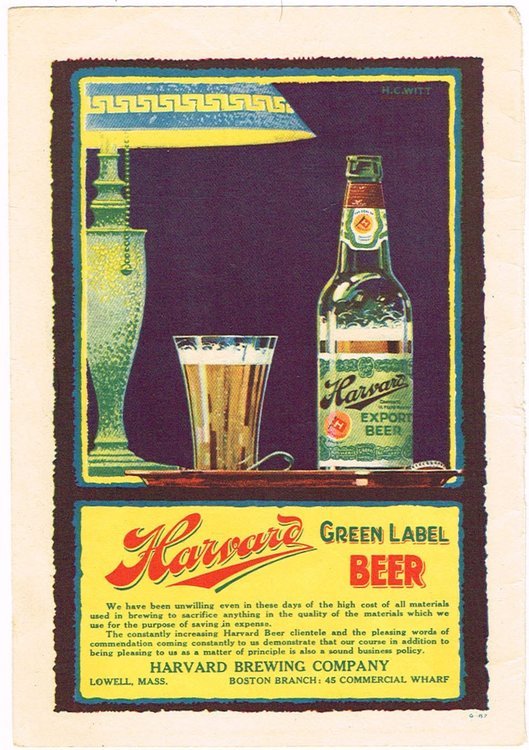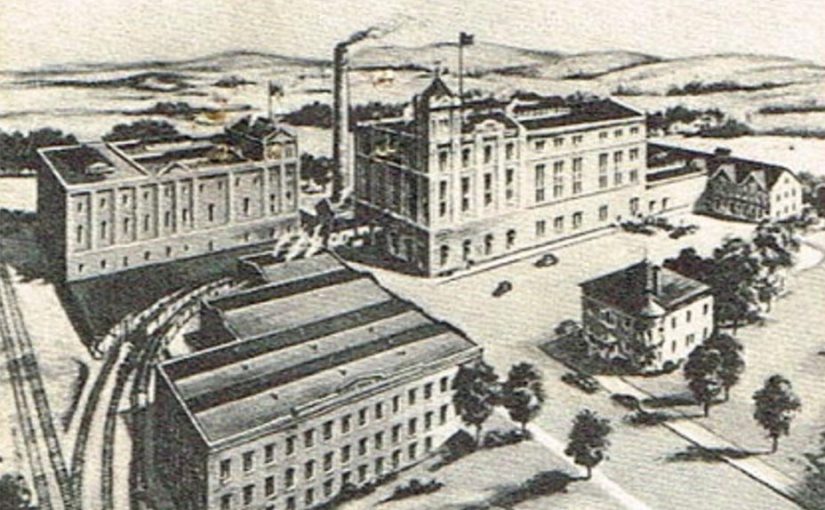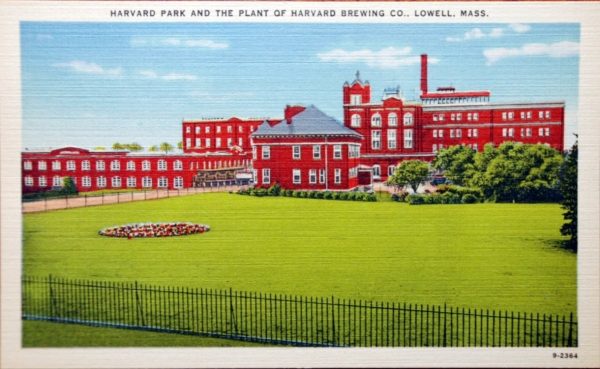
In 1893, Consumers’ Brewing Company set up shop in Lowell, Massachusetts. In 1898, the decision was made to change the name to Harvard Brewing Company, and this newly branded business successfully expanded its product line, production capabilities, and market reach over the next two decades.
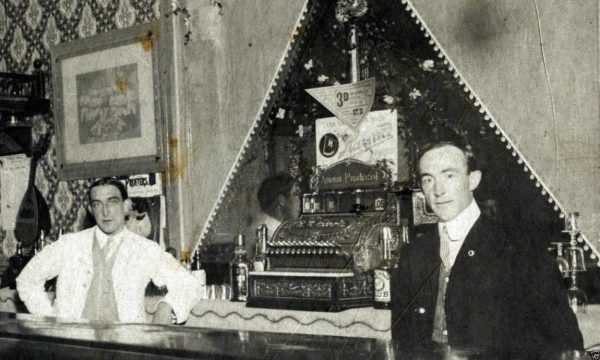
Prohibition went into effect in 1920 and the brewery’s plans to succeed by selling colas, ginger ale, and near-beer (<0.5% alcohol beer) weren’t working. With failure looming, Harvard executives added the beer back into their near-beer . Profits came back, and so did federal agents, culminating in August of 1925 when a truck filled with 100 barrels of illegal Harvard beer was hijacked in Lowell. As the hijackers were transferring the kegs to their cars, their movements were noticed by the neighborhood. And everyone wanted some of that!
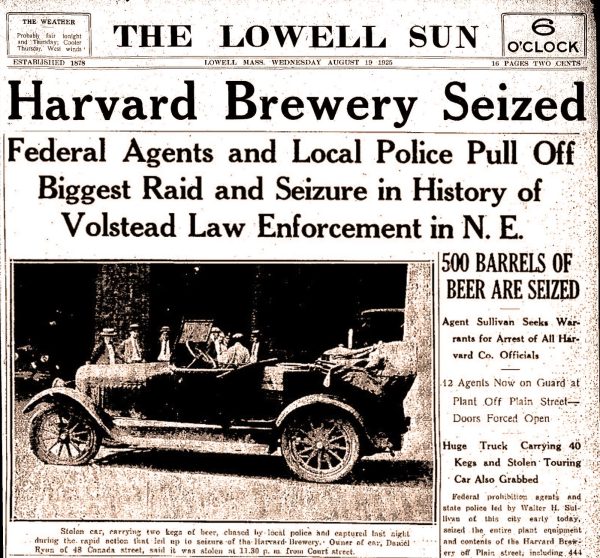
As reported by the Lowell Courier-Citizen, “As soon as it became known in the locality what was going on, hundreds appeared and surrounded the truck. They all clamored for a chance to secure a barrel of the beer. Men came to blows and bedlam reigned. Besides the men involved, it is known that several women even procured barrels and rolled them along the sidewalks or in the streets to homes thereabouts.”
Due to the ruckus, police showed up to the scene and the mob scattered in all directions. When the liquor squad inspected the back of the truck, they discovered only two dozen kegs still remaining. Tracing the truck to Harvard Brewing, the police called in federal agents from Boston.
In the meantime, police picked one of the hijacker’s cars and chased it almost into neighboring Chelmsford before it crashed in a ditch. Its occupants leapt out and escaped on foot, leaving their precious cargo of two kegs of Harvard beer behind. The car had been stolen that morning by the rum-runners, who were not caught.
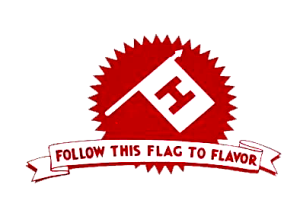
Knowing agents were coming, brewery workers scrambled to ditch the beer, going so far as to dump barrels into the River Meadow Brook, which still runs along the Lowell Connector today. Arriving agents were initially refused entrance to the Brewery for lack of a search warrant. However, upon hearing workers smashing barrels inside, the officers forced the door open and five inches of beer cascaded out over the steps and onto the agents struggling to climb into the building — a veritable river of beer. The workers escaped. Nearly 500 barrels of beer didn’t. The agents had hit the motherload.
The raid was the largest in New England’s prohibition history with over 100,000
gallons of full strength brew confiscated by the government.
